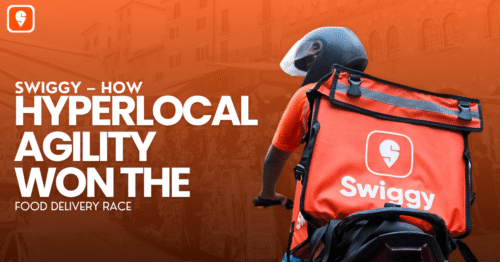In today’s competitive marketplace, small businesses are often challenged by the massive presence and resources of big brands. However, with the right digital marketing strategies, smaller companies can not only compete but also build a strong foothold in their industries. Unlike traditional marketing, digital platforms level the playing field, giving local and growing businesses the chance to connect directly with their target audience.
Leveling the Playing Field with Digital Marketing
Large corporations once held an unfair advantage with bigger advertising budgets and nationwide campaigns. Digital marketing changes this dynamic by offering cost-effective advertising channels such as social media, search engine optimization (SEO), and content marketing.
Small businesses can target their campaigns to highly specific audiences, ensuring every dollar is used effectively. Through precision targeting and data-driven campaigns, smaller players can reach potential customers as effectively as, or even more effectively than, established brands.
The Power of Search Engine Optimization (SEO)
One of the strongest tools available for small businesses is SEO. With a well-optimized website, a local coffee shop can appear ahead of an international chain when customers search for “best coffee near me.” By optimizing content with local keywords, building backlinks, and ensuring mobile-friendly design, small businesses can rank higher on Google without massive advertising budgets.
Additionally, voice search optimization and long-tail keywords allow businesses to tap into customer intent. While big brands rely on broad keywords, small businesses can dominate niche markets by answering specific customer queries through blog posts, FAQs, and guides.
Social Media Marketing for Brand Visibility
Social media platforms like Facebook, Instagram, LinkedIn, and TikTok have given small businesses the ability to compete directly with larger competitors. By creating engaging posts, reels, and stories, smaller brands can showcase their authentic identity and connect emotionally with customers.
Big corporations often struggle to maintain a personal touch, but small businesses can leverage humanized marketing to build stronger trust. Live sessions, behind-the-scenes videos, and customer testimonials give smaller brands a unique edge that large companies cannot replicate at scale.
Content Marketing: Building Authority and Trust
High-quality content marketing is another powerful strategy that allows small businesses to establish themselves as industry leaders. By consistently publishing blogs, case studies, infographics, and videos, businesses can demonstrate expertise and earn customer trust.
Content marketing not only drives organic traffic but also strengthens a brand’s long-term visibility. A single blog post optimized for SEO can continue generating leads for years, providing small businesses with a cost-efficient and sustainable marketing strategy.
Email Marketing: Personalized Customer Relationships
Email remains one of the most effective channels for customer retention. Unlike big brands that send generic newsletters, small businesses can create personalized, relationship-driven campaigns. By segmenting their email lists, they can send tailored offers, updates, and product recommendations.
With automated email sequences, even a small team can nurture leads, onboard new customers, and encourage repeat purchases — keeping customers engaged at every stage of the buying journey.
Pay-Per-Click Advertising (PPC) for Instant Results
While SEO and content marketing focus on long-term growth, PPC advertising delivers immediate visibility. Platforms like Google Ads and Facebook Ads allow small businesses to launch targeted campaigns on modest budgets.
By carefully choosing keywords, demographics, and geographic locations, small businesses can maximize their return on investment. Unlike big brands that may spend millions on broad campaigns, small businesses can focus on niche targeting for highly qualified leads.
Local SEO and Google My Business Optimization
For many small businesses, local customers are the lifeblood of their success. Through local SEO and Google Business Profile optimization, small companies can ensure they appear in local map packs and location-based searches.
Encouraging customer reviews, maintaining updated business information, and posting regularly on Google Business listings help small businesses build credibility. This is particularly powerful because local intent searches often lead to direct conversions, giving smaller companies a competitive edge over large corporations that may not focus on specific local areas.
Leveraging Data and Analytics for Smarter Decisions
One of the biggest advantages of digital marketing is the ability to track and measure results in real time. Using analytics tools, small businesses can monitor campaign performance, adjust strategies quickly, and make data-driven decisions.
Unlike traditional advertising where ROI was difficult to measure, digital channels allow small businesses to see exactly what works. This agility enables them to adapt faster than large corporations that often face bureaucratic delays in decision-making.
Influencer and Partnership Marketing
Collaborating with micro-influencers has become a cost-effective way for small businesses to gain credibility and reach. Unlike big brands that spend on celebrity endorsements, smaller businesses can partner with local or niche influencers who have a highly engaged audience.
This approach provides authentic recommendations, building trust with potential customers. Additionally, partnerships with other small businesses in complementary industries can expand reach without high costs.
Customer Engagement and Relationship Building
One area where small businesses consistently outperform big brands is customer engagement. With fewer layers of management and bureaucracy, small businesses can directly interact with customers, respond to feedback, and offer personalized service.
Through tools like chatbots, WhatsApp marketing, and personalized DMs, small businesses can build long-lasting relationships that big corporations often fail to replicate. The loyalty built from this personalized engagement often leads to repeat customers and word-of-mouth referrals.
Conclusion: Small Businesses Can Win Big with Digital Marketing
Digital marketing has fundamentally transformed the way businesses compete. By adopting SEO, social media, content marketing, email campaigns, PPC, and local SEO, small businesses can stand shoulder-to-shoulder with big brands. With creativity, authenticity, and data-driven strategies, small businesses don’t just survive in the digital era — they thrive.
Follow Us | Our Services | Contact Us | Linkedin | Instagram




